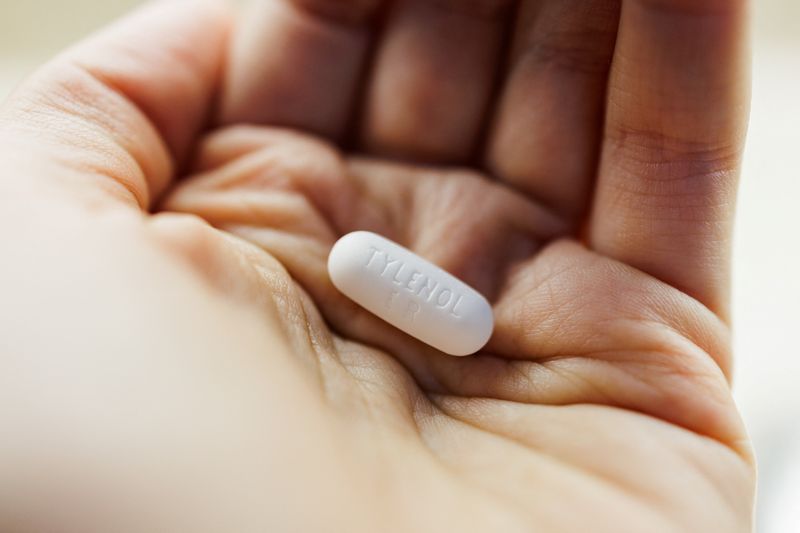Kimberly-Clark’s $50 billion leap into health and beauty tests investor faith
By Jessica DiNapoli and Abigail Summerville
NEW YORK (Reuters) -Kimberly-Clark’s nearly $50 billion offer for Tylenol maker Kenvue is a risky bet that the world’s biggest consumer market, the United States, will keep growing even as lower-income shoppers trim their budgets, according to analysts.
The cash-and-stock deal, announced earlier on Monday, is set to close late next year. It brings the maker of Kleenex tissues and Huggies diapers into a slew of new categories like skin care and pain relief that executives said are growing faster and offer higher margins than its existing portfolio of toilet paper, baby wipes and adult incontinence products. But Monday’s sharp selloff in Kimberly-Clark’s shares suggests investors are not sold.
Kimberly-Clark CEO Mike Hsu told Wall Street analysts on Monday that the company plans to drive growth by bringing its strategy of introducing new and improved products to Kenvue, whose sales have faltered. He named baby care, women’s health and products geared toward older consumers as growth opportunities for the combined company.
“We built the engine, and we’re eager to deploy it to Kenvue,” he said.
INVESTORS REACT NERVOUSLY
Kimberly-Clark has eyed Kenvue as a possible target for years, stemming from when it was part of Johnson & Johnson, sources familiar with the matter said. Prior to Monday’s announcement, the stock had lost more than 46% of its value since its spinoff in mid-2023, making the price more attractive, they said.
Talks between the two started after the Tylenol maker’s CEO, Thibaut Mongon, left this summer and the company said it was reviewing strategic alternatives, the sources said.
Kimberly-Clark said it expects $2.1 billion in annual cost savings, but its shares closed 14.6% lower on Monday as analysts raised concerns about the combination. Shares of the smaller Kenvue closed 12.3% higher even though the deal value put an implied 46% premium on Kenvue.
“Considering the drop in Kimberly-Clark’s market cap was more than the gain in Kenvue’s, the market is expressing skepticism,” said Brian Jacobsen, chief economist at Annex Wealth Management.
BNP Paribas analysts said the merger had a “questionable strategic fit” because the companies’ drugstore staples do not have much apparent overlap, making it harder to deliver cost savings. There is also risk “from weakening consumer buying power,” Robert Moskow of TD Cowen wrote.
Analysts have said that less affluent Americans are stressed by rising healthcare costs and the potential loss of federal food benefits during the U.S. government shutdown.



Leave a Comment
Your email address will not be published. Required fields are marked *